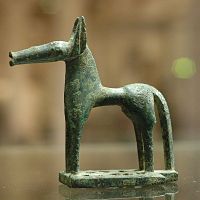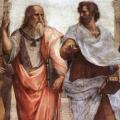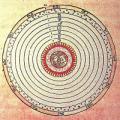39 - Form and Function: Aristotle's Four Causes
Aristotle's Physics presents four types of cause: formal, material, final and efficient. Peter looks at all four, and asks whether evolutionary theory undermines final causes in nature.
Themes:
• J. Annas, “Aristotle on Inefficient Causes,” Philosophical Quarterly 32 (1982), reprinted in T. Irwin (ed.), Aristotle: Metaphysics, Epistemology, Natural Philosophy (New York: 1995).
• D. Charles, “Aristotle on Hypothetical Necessity and Irreducibility,” Pacific Philosophical Quarterly 69 (1988).
• C.A. Freeland, “Accidental Causes and Real Explanations,” and J.M. Moravcsik, “What Makes Reality Intelligible? Reflections on Aristotle’s Theory of Aitia,” in L. Judson (ed.), Aristotle’s Physics: a Collection of Essays (Oxford: 1991).
• S.S. Meyer, “Aristotle, Teleology and Reduction,” Philosophical Review 101 (1992).
• D. Sedley, “Is Aristotle’s Teleology Anthropocentric?” Phronesis 36 (1991).

Aristotle


 ..
..



Comments
Aristotle's Causes Seem to Apply More to Things Than to Events
In 20th-century metaphysics, when we discuss causation, it is often in regard to events.
By contrast, Aristotle seems to address his concept of causation toward things.
Compare: "What caused the volcano eruption?" or "What is the cause of lava?"
Compare: "What caused the vehicle to crash?" or "What is the cause of the wrecked vehicle?"
Is this a difference of merely surface grammar? Or is there a deeper difference?
Compare: "Why is that rock there?" or "What is the cause of that rock?"
In reply to Aristotle's Causes Seem to Apply More to Things Than to Events by Andrew Smith
Four causes
Yes though I would say that the four causes are explanations of both things and events, since Aristotle would use this scheme also to explain things like the fighting of a war or a recovery from an illness.
Add new comment